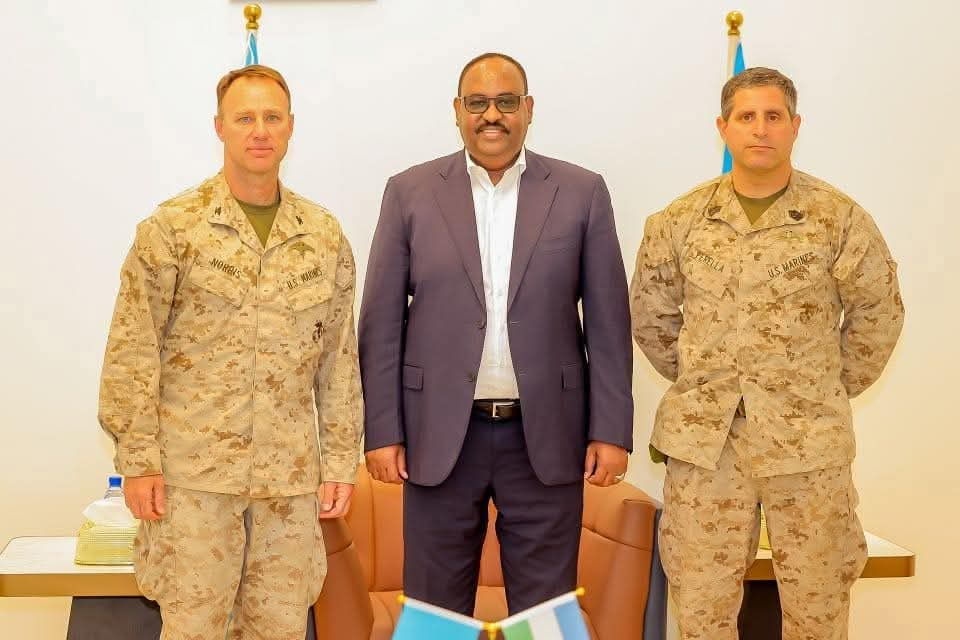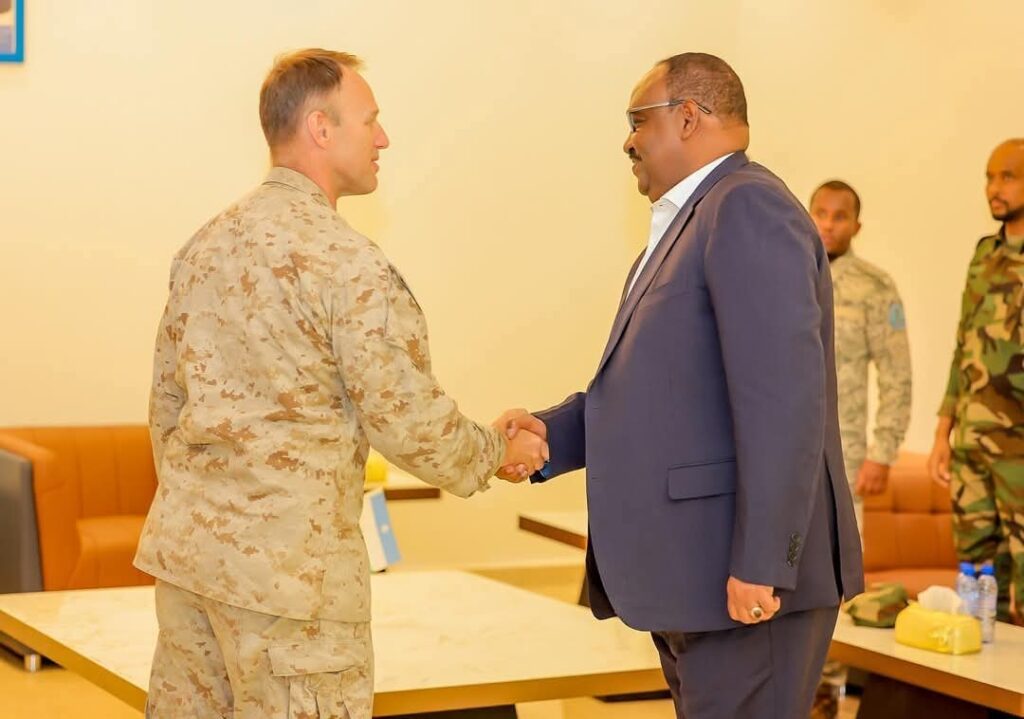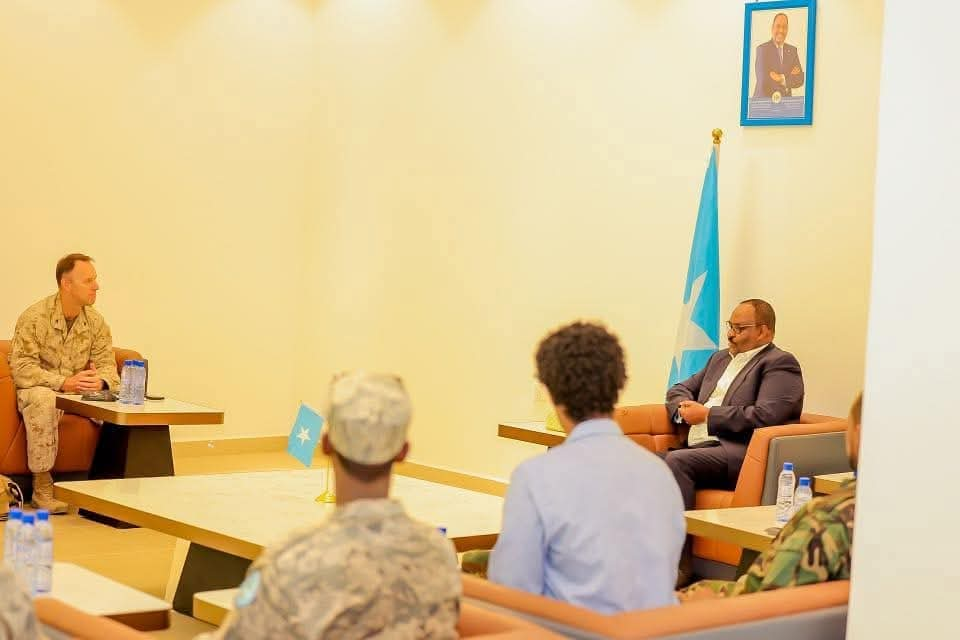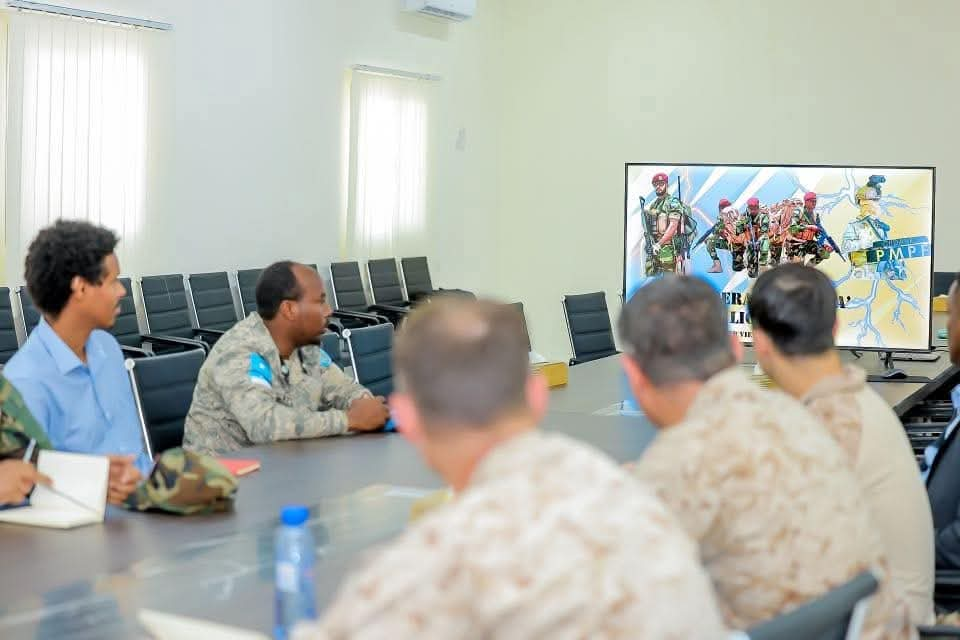Idil News, In a significant step toward deepening military ties in East Africa, U.S. commanders touched down in Bosaso, Puntland on April 6 Sunday, signaling the start of an ambitious Pentagon-supported effort to modernize the region’s security forces. The high-level delegation, led by Colonel Ed Norris, AFRICOM’s Special Operations Commander for East Africa, met with Puntland President Said Abdullahi Deni in Bosaso to discuss enhanced bilateral relation, cooperation and strategies to bolster security across the region.
Puntland State House statement
The President of Puntland State, HE Said Abdullahi Deni, had a meeting today with a delegation led by the Commander of U.S. Special Operations in East Africa, Colonel ED Norris in Bossaso.
Among the matters discussed during the meeting include the general security situation, in particular the ongoing Puntland Counter-Terrorism Operations code-naming #Hillaac campaign in Puntland. The President expressed his gratitude to the U.S. Government for their aerial strike support in the ongoing military.
Offensive against the terrorist group ISIS or Daesh from the Cal Miskaad mountainous range of the Bari region. The US. praised Puntland’s counterterrorism efforts under Operation Hilaac and acknowledged the significant progress made by the Puntland Defense Forces.
The meeting also addressed ways of strengthening further cooperation between the U.S. and Puntland.
Victory for President Deni
Sahan Research Director, Rashid Abdi posted “Wars are won not just by committed soldiers but also by competent military commanders fully supported and empowered by smart leaders.
Puntland’s great success in the war against ISIS shows how insurgencies can be defeated.
President Deni’s decision to appoint and empower the right people and deepen strategic cooperation with US was a smart move.
Hail President Deni
Hail Gen Ahmed
Hail Puntland”
The visit comes as part of a broader U.S. initiative to transform Puntland’s military into a unified, professional force capable of confronting terrorism head-on. Sources close to the talks say the Pentagon has its sights set on more than just incremental change. The goal is a top-to-bottom overhaul, including the establishment of a formal Puntland Ministry of Defense and a centralized command structure modeled after the U.S. Joint Chiefs of Staff.
On the table are plans to equip Puntland with advanced U.S. military hardware, including Joint Light Tactical Vehicles (JLTVs), Stryker armored vehicles, and even fast-attack naval craft to lay the foundation for a future Puntland Navy.
These upgrades could mark a dramatic shift from the region’s reliance on loosely organized militias, often seen operating from pickup trucks, to a disciplined, modern fighting force. But the assistance comes with strings attached. According to insiders, the Pentagon is insisting on verifiable reforms, including a clear chain of command and accountability measures, before any equipment or resources are delivered.
The message from Washington is clear:
Puntland must prove it can handle the responsibility of a modernized military.
For President Deni, the talks represent an opportunity to strengthen Puntland’s role as a stable partner in a region. With U.S. backing, his administration aims to reshape the narrative around Puntland’s security capabilities, positioning it as a key ally in the fight against extremist groups in East Africa.
The arrival of AFRICOM’s senior brass underscores the strategic importance of Puntland, a semi-autonomous state in eastern Africa, as the U.S. seeks to counter growing threats in the Horn of Africa. While details of the negotiations remain under wraps, the outcome of this military modernization campaign could have far-reaching implications for stability in the region, and for U.S. influence on the continent.




